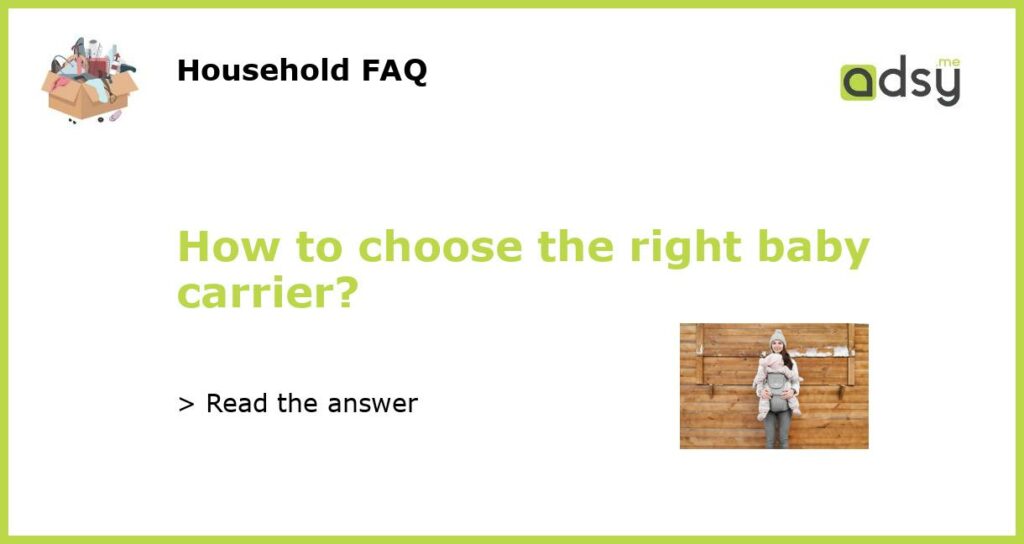Understanding the Different Types of Baby Carriers
Before choosing a baby carrier, it’s essential to understand the different types available in the market. The most common types of baby carriers are slings, wraps, soft-structured carriers, and mei tais. Slings are made from fabric and worn over one shoulder, while wraps are a long piece of fabric that can be tied in multiple ways. Soft-structured carriers, or SSCs, are similar to backpacks and have padded shoulder and waist straps. Whereas, mei tais are a blend of SSCs and wraps and have a structured waistband and shoulder straps, but the body is made from a fabric panel.
Taking into Account your Baby’s Age and Weight
Age and weight are critical factors to take into account when choosing a baby carrier. Newborns will need a different carrier than an older baby, and a heavyweight carrier will be required if your baby is on the heavier side. Infant inserts are also available for carriers that are not designed for newborns, but it’s critical to ensure that the carrier’s weight capacity meets your baby’s needs.
Evaluating the Carrier’s Comfort and Support
Comfort and support should be at the forefront of your decision-making when choosing a baby carrier. A carrier that does not provide sufficient support can cause discomfort, strain on your back, and sprains. Look for carriers that have a firm waist strap that evenly distributes your baby’s weight over the hips and not just the shoulders. Wide shoulder straps can help decrease the strain on the shoulders, and padded straps can help reduce soreness.
Taking Practicality and Convenience into Account
Baby carriers come in various sizes and weights, and it’s essential to choose one that fits your lifestyle. If you’re a busy parent who needs to use public transport or run errands, consider investing in a compact and lightweight carrier that can be easily stored in a diaper bag. If you’re an outdoorsy parent who enjoys hiking, a carrier that has storage compartments, extra padding, and sufficient ventilation will be required. Parents that like to breastfeed will need a carrier that promotes privacy and has easy access to nursing.
Researching the Brand’s Reputation and Quality
When it comes to baby carriers, it’s crucial to research the brand’s reputation and quality of the carrier. Look for brands that have a good reputation for creating safe, durable, and high-quality carriers. Check out reviews from other parents, consult parenting blogs, and research everything from the manufacturing process to the materials used. Consider purchasing a carrier from a reputable store like BabyBjörn, Ergobaby, or Tula to ensure that you receive a high-quality carrier that will last you and your baby for years to come.






